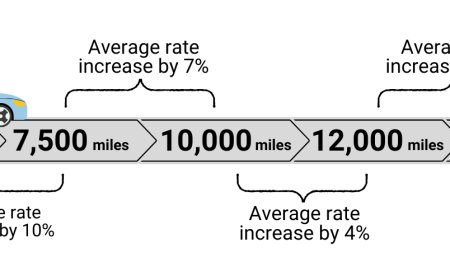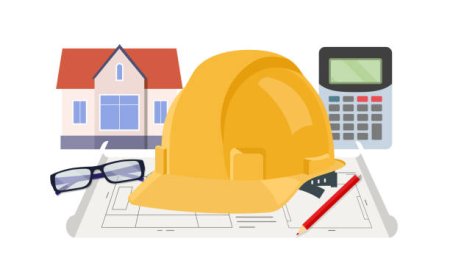What’s the Difference Between Getting Pre-Qualified and Pre-Approved for a VA Home Loan?
Pre-approval involves verified finances, unlike pre-qualification, and gives buyers stronger credibility when applying for a VA home loan.

If you’re thinking about purchasing a home with the help of a VA loan, there are two phrases you’ll hear almost immediately: pre-qualification and pre-approval. They sound similar—and they both happen before you make an offer—but the differences between them are significant. Understanding how each one works and what they tell lenders and sellers can help you decide how to move forward with confidence.
Pre-Qualification Is the Warm-Up Round
Pre-qualification is the initial step in your home buying process. Think of it as a soft financial snapshot. You share basic details about your income, assets, debts, and sometimes military service, often through an online form or a quick phone call. Based on this information, the lender gives you a general idea of how much you might be able to borrow.
Here’s the catch: it’s not verified. No official documentation, credit checks, or promises. You’re relying on estimates—both yours and theirs.
Still, pre-qualification can help you:
-
Gauge your budget range early on
-
Identify whether you meet basic eligibility for a VA loan
-
Begin conversations with lenders and real estate agents
But it’s not something that will carry weight with sellers, especially in competitive markets.
Pre-Approval Is the Full Financial Check-Up
Getting pre-approved for a VA home loan goes several steps further. It’s a more formal process where lenders verify your financial health using official documents:
-
Pay stubs
-
Tax returns
-
Bank statements
-
Certificate of Eligibility (COE)
-
Credit report
Pre-approval means the lender has reviewed your finances in detail and is willing to lend up to a specific amount. You’ll receive a pre-approval letter, which acts as proof that you're serious, qualified, and prepared to make an offer. In some cases, this letter can help you move to the front of the line when bidding against other buyers.
Why Does the Distinction Matter?
While both steps help you prepare for buying a home, only pre-approval has real authority behind it. Sellers and agents see it as a green light—they know you’ve done your homework and that financing is already in motion.
On the other hand, pre-qualification offers no guarantees. It’s helpful early on, but if you’re aiming to submit a competitive offer, pre-approval is the move that gives you traction.
The Role of Lenders in Each Process
With pre-qualification, a lender might not even check your credit. They rely on your self-reported data and use automated calculators to estimate your loan potential. It’s quick, informal, and meant to be low-pressure.
Pre-approval is handled more rigorously. Lenders run your credit report, verify your employment, and assess your debt-to-income ratio. If you’re applying for a VA loan, they’ll also ensure your eligibility through the COE and determine your VA entitlement amount. This process may take a day or two—but it's worth the wait.
How VA Loans Influence These Steps
VA loans come with unique guidelines compared to conventional loans. For example:
-
No down payment required in most cases
-
No private mortgage insurance (PMI)
-
More flexible credit score requirements
Because of these perks, many borrowers assume getting a VA loan is simple. But these benefits only apply once you've gone through proper approval. Pre-qualification doesn’t guarantee anything—VA requirements must still be met during pre-approval and final underwriting.
Can You Skip Pre-Qualification and Go Straight to Pre-Approval?
Absolutely. Some borrowers bypass pre-qualification entirely and jump right into the pre-approval stage. If you’ve already gathered your financial documents and know you meet eligibility, this can save time and position you more competitively in the market.
Still, pre-qualification has its uses. For example, if you're just starting out, unsure about your budget, or comparing lenders, it provides a low-stakes way to begin the conversation.
When Should You Get Pre-Approved for a VA Home Loan?
The ideal time is before you start actively shopping for a home. Once pre-approved, you’ll know:
-
How much you can realistically borrow
-
What price range to stay within
-
Whether your financial profile meets VA loan standards
It also allows your real estate agent to narrow down listings and negotiate with confidence on your behalf.
Do Pre-Qualification and Pre-Approval Affect Your Credit?
Pre-qualification usually involves a soft credit inquiry, which doesn’t impact your score. Pre-approval requires a hard inquiry, which may lower your score slightly—but it's a normal part of applying for any loan. As long as you manage your credit responsibly during the home buying process, this minor dip won’t cause long-term harm.
How Long Do These Letters Last?
A pre-qualification estimate has no official expiration date—but it’s also not legally binding. Pre-approval letters typically last 60 to 90 days, after which you may need to update financial documents and undergo another review.
If your financial situation changes drastically—like changing jobs or paying off major debt—you’ll want to refresh your pre-approval status anyway so lenders have the most current picture.
Conclusion
Get Pre-Approved for a VA Home Loan is a game-changing step that goes far beyond pre-qualification. While both help you prepare, only pre-approval reflects verified financial strength and lender commitment. In today’s housing market, where speed and credibility matter, taking the extra time to get pre-approved not only empowers your home search—it proves you're ready to make a smart, serious purchase.
Whether you're new to the process or refining your strategy, aim to get pre-approved before diving deep into listings. It's the difference between browsing and buying.


































